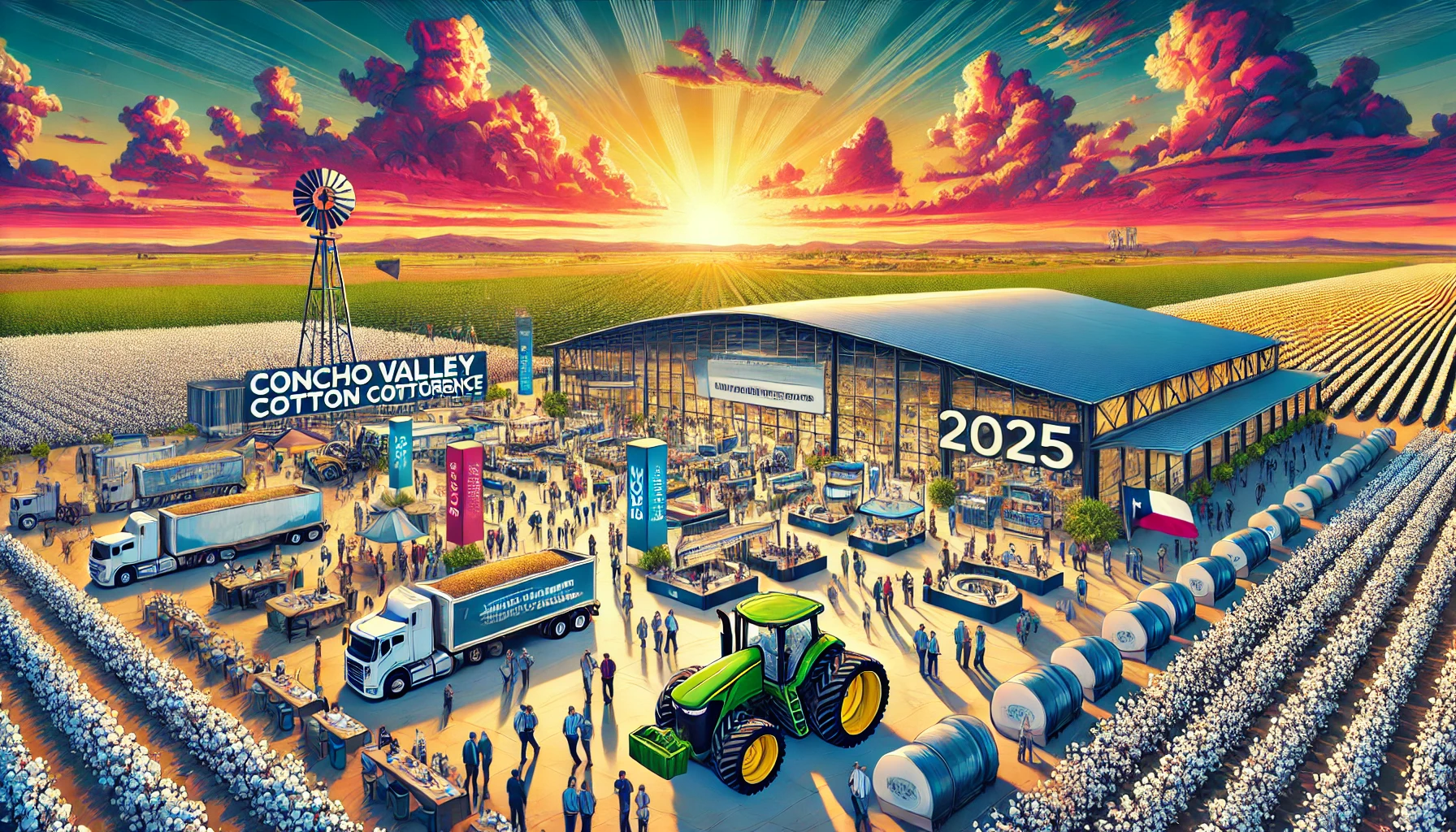Introduction
The 2025 Concho Valley Cotton Conference was held on February 28, 2025, at the McNease concho valley homepage Convention Center in San Angelo, Texas. This bi-annual event brought together cotton producers, industry experts, and agricultural leaders to discuss the latest advancements, market trends, and sustainability practices in the cotton industry. The conference provided a platform for farmers to learn, network, and explore new strategies to enhance their cotton production.
The Growing Importance of Cotton Farming in 2025
Cotton remains a key crop in Texas and the United States, contributing significantly to the textile industry and global trade. With changes in climate, market demands, and technological advancements, farmers must adapt to new challenges and opportunities. The Concho Valley Cotton Conference 2025 focused on solutions that will shape the future of cotton farming and agribusiness.
Key Topics Discussed at the Conference
This year’s event introduced new discussions and insights into the cotton industry’s evolving landscape. Some of the major topics covered included:
- Emerging Cotton Varieties and Their Benefits
- Advanced Farming Technology for Better Yield
- Climate Change and Adaptive Farming Strategies
- The Role of Data Analytics in Cotton Production
- Sustainable Water Management Practices
- New Government Policies and Funding for Farmers
- Economic Trends Affecting Cotton Pricing in 2025
Cutting-Edge Cotton Varieties Introduced
Higher Yield and Better Resilience
A major highlight of the conference was the introduction of new cotton seed varieties that offer higher yields, pest resistance, and improved fiber quality. Scientists and agricultural experts discussed how genetically enhanced cotton can help farmers reduce production costs while maintaining high-quality output.
Smart Farming: The Future of Cotton Production
Role of AI and Automation in Cotton Farming
With the rapid concho valley homepage advancement of smart farming technology, experts showcased how AI-driven decision-making tools, automated irrigation systems, and precision farming techniques are transforming the cotton industry. Drones, satellite imagery, and IoT-based sensors now allow farmers to monitor their fields in real time, reducing waste and increasing efficiency.
Weather Challenges and Climate Adaptation Strategies
Preparing for Extreme Weather Conditions
Unpredictable weather patterns have posed significant risks to cotton farmers. At the conference, climate specialists shared innovative weather-resistant farming techniques, including soil moisture conservation, diversified crop rotations, and organic pest control methods to help farmers adapt to climate change.
Data-Driven Cotton Farming: Enhancing Productivity
Using Big Data to Optimize Farming Decisions
The use of big data analytics is reshaping modern farming. Speakers at the conference explained how data-driven insights can help farmers make better decisions on planting schedules, pest control, and fertilizer application. By leveraging AI-powered analytics, farmers can predict crop performance and reduce losses.
Sustainable Water Management for Cotton Fields
Efficient Irrigation Techniques to Conserve Water
Water is one of the most critical resources in cotton farming. Experts at the conference introduced efficient irrigation solutions such as drip irrigation, rainwater harvesting, and smart water sensors to help farmers manage water resources effectively while reducing costs.
Government Support and Financial Assistance for Cotton Farmers
New Policies and Grants for 2025
Representatives from the USDA and agricultural organizations provided insights into new government policies and financial aid for cotton farmers. Programs included low-interest loans, grants for sustainable farming, and insurance schemes designed to help farmers mitigate financial risks and boost profitability.
Cotton Market Predictions and Economic Trends
What Farmers Need to Know About 2025 Cotton Pricing
Economic analysts shared their forecasts on cotton prices in 2025, highlighting global demand, trade policies, and inflation trends. Farmers learned how to navigate market fluctuations and adopt pricing strategies to maximize their revenue.
Industry Booths and Networking Opportunities
Connecting Farmers with Leading Industry Experts
Over 25 industry booths were set up at the conference, offering farmers access to the latest products, equipment, and services in the cotton sector. Attendees were able to engage with agriculture experts, suppliers, and financial advisors to explore opportunities concho valley homepage for growth and expansion.
Expert Insights: Lessons from Agricultural Leaders
Key Takeaways from Industry Experts
One of the most anticipated sessions featured Josh Blanek, a County Extension Agent, who emphasized the importance of education and long-term planning for cotton farmers. His speech covered:
- The future of cotton farming amid climate change
- The role of technology in boosting agricultural efficiency
- How farmers can stay competitive in the changing global market
The Road Ahead: Future of the Concho Valley Cotton Conference
What to Expect in the Next Event
With the next Concho Valley Cotton Conference scheduled for 2027, organizers aim to introduce more interactive workshops, cutting-edge research, and expert-led discussions to continue supporting cotton producers.
Conclusion
The Concho Valley Cotton Conference 2025 was a major success, offering invaluable knowledge, resources, and networking opportunities to farmers. By focusing on innovation, sustainability, and financial resilience, the event provided attendees with the tools and strategies needed to thrive in an evolving agricultural landscape.
For continuous updates on cotton farming advancements, visit the Concho Valley Homepage regularly.




